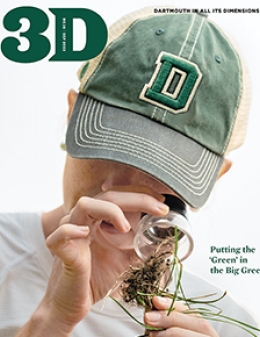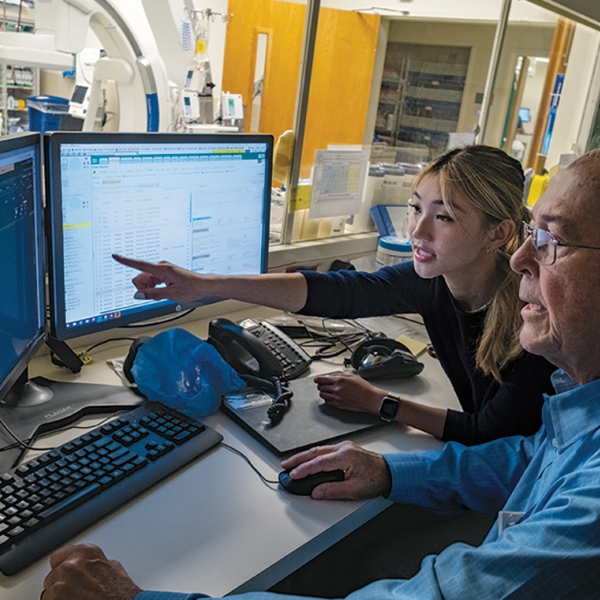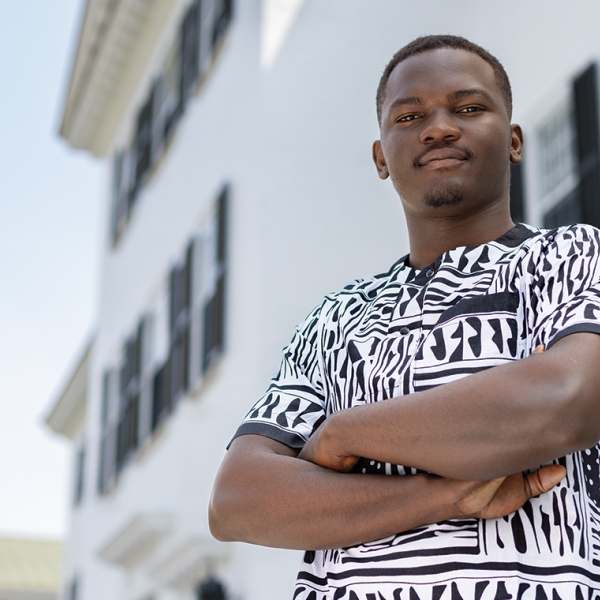In 2004, Professor Zaneta "Zane" Thayer '08—then a high school student from Cottage Grove, Oregon—was in the thick of her college search. "Dartmouth was the only school on the East Coast I applied to," remembers Professor Thayer, who was a first-generation college student. "When I flew out for Dartmouth's admitted student program, I met kids from all over the country and the world. I loved that it was so far outside my comfort zone and that I'd be surrounded by so many different perspectives."
In her first year as a Dartmouth student, Professor Thayer was quickly drawn to a double major in biology and anthropology. At the time, there was only one biological anthropologist at the College. Now, 15 years later, Professor Thayer is one of four biological anthropologists in her department, studying how and why early life environments shape human biology and health outcomes. She teaches classes in evolutionary medicine, biological variation, pregnancy, and childbirth.
As an undergraduate, Professor Thayer traveled to New Zealand on the Department of Anthropology's Foreign Study Program, where she and her fellow students learned about legacies of colonization and visited culturally historic sites across the country. The experience, she says, was transformational for her future research on psychosocial stress and the effects of racism, poverty, and historical trauma on health. A few years later, she returned to New Zealand to begin her PhD dissertation on the intergenerational effects of stress on childbirth and maternity care.
That topic remains a primary research interest for Professor Thayer today. "Childbirth is a perfect example of ways in which your culture impacts your biology and your biology impacts your culture," she says. "I'm interested in how fear about childbirth could actually impact physiological stress response during birth, the amount of pain one experiences at birth, and therefore the actual process of birth." Using data from a cohort of individuals who were pregnant during the COVID-19 pandemic, Professor Thayer has been analyzing how maternal depression impacts the production of the stress hormone cortisol in both mothers and their babies.
Professor Thayer's teaching philosophy is inextricably linked to her experience as a Dartmouth undergraduate. "I really benefited from working closely with my undergraduate advisor," she reflects. "I ended up publishing my first two papers based on my senior honors thesis—work that was funded by grants I accessed as an undergraduate. That was foundational to my career as a researcher, and I try to pay that forward with my students."
In fact, "paying it forward" is a theme of Professor Thayer's teaching career. In winter 2025, she will lead the anthropology department's Foreign Study Program in Auckland, New Zealand—the very same program she embarked upon as a student. "It's a very full circle moment," she says with a smile.
Photograph by Don Hamerman




